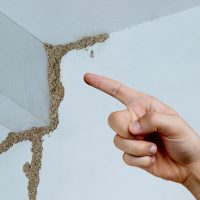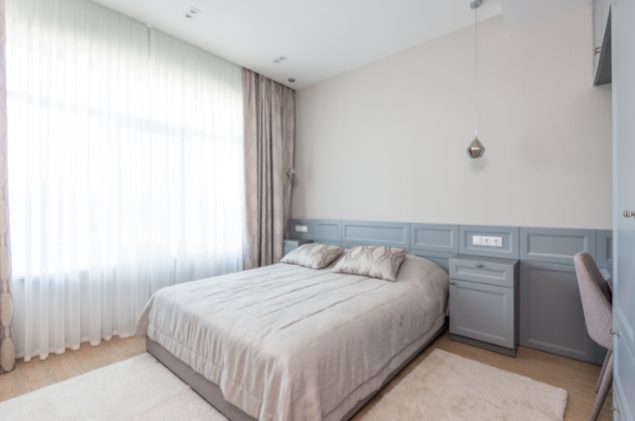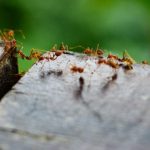As a tenant, it’s important to remember that pest infestation in a rented property is common, and you’re not alone in dealing with this pest issue.
Usually, common pests such as bed bugs, ants, cockroaches, and rodents are the kind of unwelcome visitors you would be least willing to have.
However, since pest infestation in a rented property is a common situation, it’s crucial to know how to address the matter appropriately and maintain a good landlord-tenant relationship.
Processes of Addressing Pest Infestation in a Rented Property
Legal requirement in Singapore is that landlords must make their premises habitable and free of pest infestation at the start of the tenancy. Importantly, the landlords must ensure that responsibility for pest control measures is included in the tenancy agreement.
Notably, in this post, we will discuss how to approach the issue of pest infestation in a rented property.
Who is Responsible for Handling Pest Infestation in a Rented Property?
To address a pest infestation in a rented property, you should begin by determining who is responsible. Usually, and in most instances, tenants are primarily responsible for keeping their apartments pest-free and clean. They should dispose of garbage properly without exception and ensure that no food crumbs are left on the kitchen counters.
But in some instances, where the infestation has resulted due to structural defects such as damaged walls or pipes, or where the infestation has extended across the building, then the landlord is responsible.
What’s Your Role as a Responsible Tenant
As a tenant, your immediate response to a pest infestation in a rented property is crucial. By taking prompt action, you are enable to make a significant difference in creating a comfortable, pest-free living environment. Some of the things you can do when you see pests in your apartment include:
- Record the Infestation: When you see pest infestation, such as feces, bites, or evidence of the pests, you can photograph them as evidence.
- Inform Your Landlord Promptly: Write to your landlord or property manager, or email them. In the message, write a clear description of the pest, areas affected, and any probable causes you have observed.
- Take Pest Prevention Measures: Seal food packages, discard trash daily, and clean surfaces to destroy attractants.
- Avoid DIY pest control: Refrain from using over-the-counter pesticides because they can worsen the situation or be a health risk.
Work Closely with Your Landlord in Getting Rid of the Pest Infestation Problem
Once you have informed the landlord of the infestation, they will likely contract a professional pest control service provider, primarily if the infestation affects the entire apartment.
Thus, if the pests are not just in your space, but even within the corridors, and you have pest control conditions clearly outlined in your tenancy contract, you can work closely with the landlord within the given framework to eliminate the pests. One of the ways you can make the work easier for the landlord is by simply staying away from the premises when requested for a smooth and safe fumigation exercise.
Simple Pest Prevention Measures
Even as a tenant, you also have an essential role to play to ensure a pest free environment.
Some of the ways through which you can ensure pest infestation control include:
- Regular and proper hygiene: Clean your leased space regularly, especially the kitchen and dining table, to sweep away food crumbs. Importantly, ensure your space is clean, dry, and free of all pest-attracting objects.
- Seal Cracks: Caulk cracks near windows, pipes, and doors to prevent insects from entering through them.
- Store Food Properly: Use covered containers and avoid eating in bed to prevent potential ant or cockroach infestation.
- Report Any Pest Infestation Case: Notify your landlord right away if there is dampness or structural damage likely to attract pests. By doing so, you are not only fulfilling your obligation as a tenant but also taking additional steps to prevent an imminent infestation.
Conclusion
As a tenant, by implementing the above measures to handle pest infestation in a rented property, you are not only ensuring your premises are free from pests but also protecting yourself from future conflicts with your landlord. Usually, not addressing a pest infestation can lead to serious issues such as tenancy contract violations or health code violations. Therefore, it is crucial to act quickly before these problems escalate.
Importantly, remember that, when it comes to pest infestations, it’s always best to leave the matter in the hands of a professional pest control company. The professionals provide a safe and effective solution, ensuring you stay in pest-free rental property.
Lastly, in case of pest infestations, inform your landlord. Also, do not hesitate to contact a trusted pest control services company for advice and services. At Eminent Pest Control, we will respond promptly to your inquiry. Importantly, we will offer customized pest control treatment for your rental property.








































